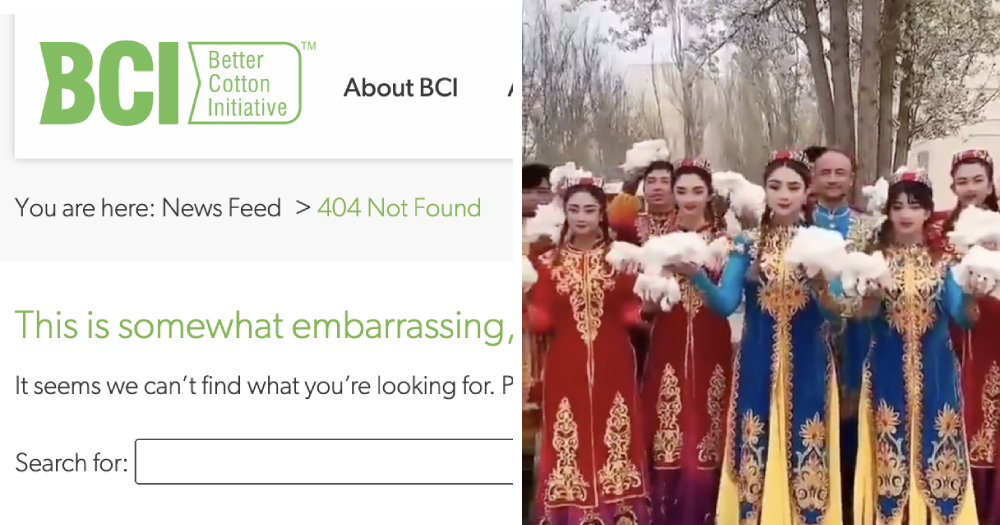In the wake of widespread calls among the Chinese to boycott Western brands over allegations of forced labour in the Chinese province of Xinjiang, an international cotton non-profit group has removed its statement that claimed the same.
Statement removed in wake of controversy
Better Cotton Initiative (BCI), a Europe-based cotton watchdog organisation that several foreign fashion and sportswear brands are affiliated with, previously announced in October last year that it decided to stop sourcing cotton from Xinjiang, due to concerns over forced labour in cotton farms.
Following outrage among Chinese consumers towards foreign brands like H&M for past statements on alleged forced labour in Xinjiang, BCI's statement that announced it was ceasing all operations in Xinjiang has since been taken down from its website, Axios pointed out.
BCI's Shanghai branch had since said it had not "found a single case related to incidents of forced labour" in Xinjiang.
BCI told Axios, "We will not be providing input on this at the moment" and did not respond to follow-up queries on whether BCI would be operating in Xinjiang again.
What's the controversy about?
Fast-fashion retailer H&M previously stated that it is "deeply concerned" over reports that assert forced labour and discrimination of ethnic minorities in Xinjiang.
While the statement was released a year ago, it recently resurfaced when Chinese netizens dug it out, which in turn sparked calls for boycott of the Swedish multinational firm.
Other foreign brands associated with BCI, including Nike and Adidas, were dragged by nationalistic netizens as well, with state media joining in the effort to call the brands out.
Several Chinese celebrities who were their brand ambassadors promptly dropped them, perhaps eager to distance themselves from the controversy.
H&M
H&M subsequently removed the statement, but a similar one could still be found on its website.
In a seeming attempt to placate Chinese consumers, H&M released released a statement for its Chinese audience on Weibo that said their supply-chain principles "do not represent any political position".
The statement, which did not mention Xinjiang explicitly, was not received well by netizens, who felt that it was a non-apology.
Following its report of a quarterly loss, H&M once again released a statement that promised its "long-term commitment to China", saying they are "dedicated to regain the trust" of their customers.
They had attributed the financial loss entirely to a drop in sales due to restrictions brought about by the Covid-19 pandemic.
Blanket denial of human rights abuses accusations
Research findings released by U.S.-based non-profit think tank Center for Global Policy alleged that more than half a million people from ethnic minority groups in Xinjiang have been coerced into picking cotton.
United Nations experts said that as many as one million Uyghur minorities in Xinjiang have been locked up in internment camps that China calls "re-education centres".
China has long refuted accusations of human rights abuses in these places it calls vocational training centres, and said their purpose is to fight extremism.
Read more:
Top image adapted via BCI & Twitter
If you like what you read, follow us on Facebook, Instagram, Twitter and Telegram to get the latest updates.
